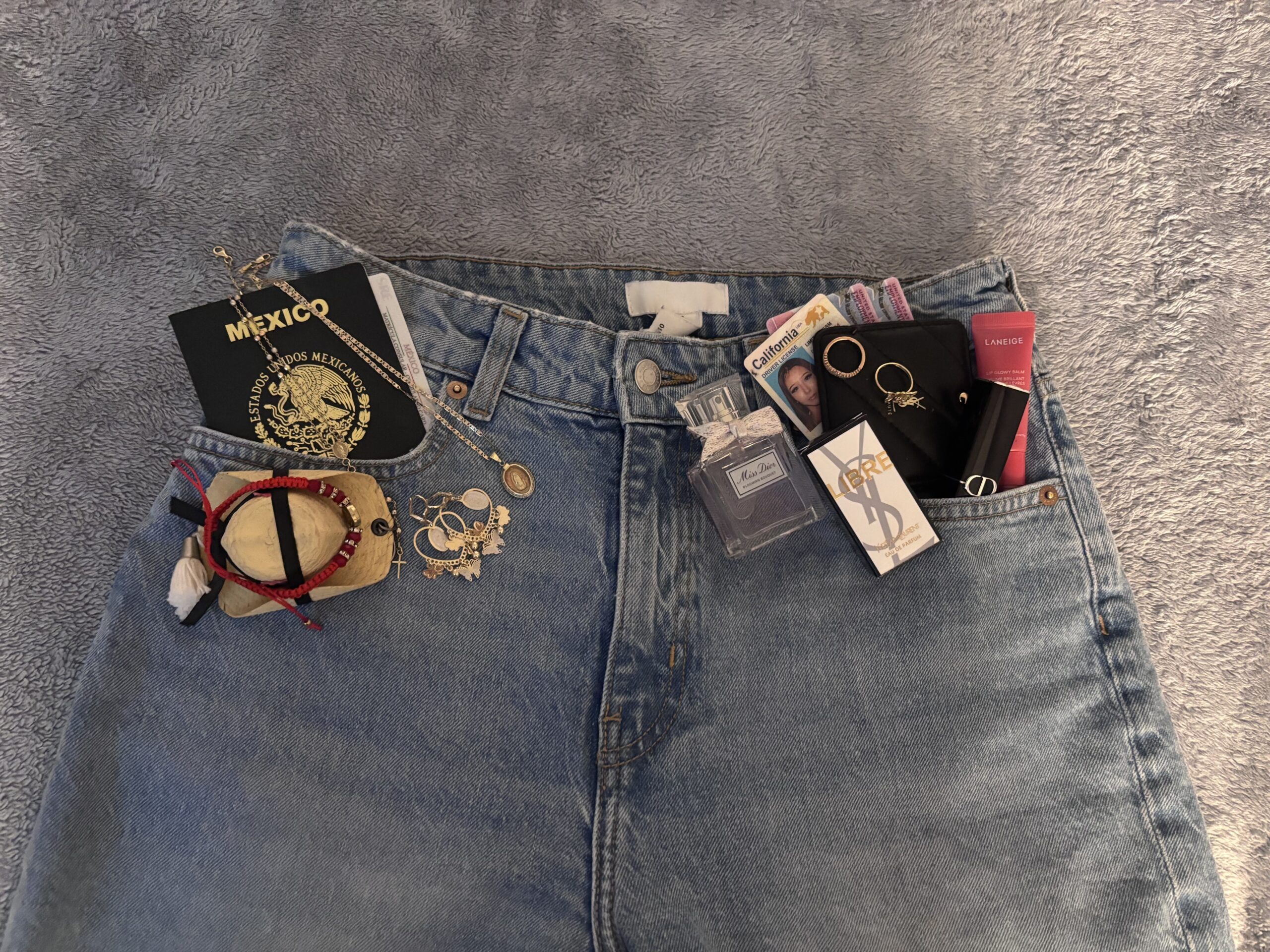By Viri Garcia Gallardo, Staff Reporter
The day after the U.S. election, I was supposed to attend a “Vent Sesh” at the Immigrant Justice Center on campus, but instead, I went to church to pray for a miracle.
La Virgen de Guadalupe holds a special place in the hearts of many Mexican Catholics – a symbol of resilience and maternal care, reminding us that we are not alone. For me, she represents hope for the future – a gentle yet unwavering symbol of the strength I carry with me as I face the unknown.
Donald Trump’s presidential victory felt like a heavy punch to the gut, so I went looking for a glimmer of hope in what seemed to be the total darkness of the moment. It wasn’t the first time I knelt before an altar during this election season. As many people brace for another Trump term, I know it won’t be the last time I’ll turn to faith to ease my uncertainty.
Like some 580,000 people in the United States, I’m a recipient of the Deferred Action for Childhood Arrivals program, or DACA. The Obama-era initiative offered protections to people like me, who came to the U.S. as children without paperwork. DACA recipients, known as “Dreamers,” receive work authorization and protection from deportation.
I was born in Guerrero, Mexico, but the U.S. is the only home I’ve ever known. I came here at the age of two, when my parents made the painful decision to leave home in search of safety from violence. We settled in Garden Grove – where my life is, where my friends are, and where my most cherished memories are.
I understood my undocumented status from a young age – a secret I guarded from the rest of the world with the utmost care. “Undocumented” may not have been written on my forehead, and despite being just as American as all my other friends and classmates, the reality of my status was never far from my mind.
I was in the seventh grade in 2016 when Trump first came to the White House. Even then, I was gripped with fear over what he might do. No child should ever have to wonder whether they’ll be sent “back where they came from,” but that was my reality. I wasn’t a DACA recipient then, and I often heard rumors about immigration officers coming to sweep schools, churches, and other so-called “safe” spaces.
My mom used to tell me that if I were ever caught, I wouldn’t be able to call them for help. My parents were my safe space, and knowing they wouldn’t be able to protect me was crushing. I finally received DACA during Trump’s last months in office.
Trump has vowed to carry out mass deportations of undocumented residents once he returns to the Oval Office in January. I had knelt before an altar several times before Election Day, and now, with even more fear and uncertainty looming over me and many others, I know it won’t be the last time I’ll turn to faith to give me peace.
Everything about the election was overwhelming. For weeks, news reports told stories about how pivotal the election would be to the future of the U.S. Politicians, celebrities, activists, and community organizers reminded us how important it was to get out the vote because every ballot counted and every voice mattered.
Except mine.
As a Dreamer, I’m not allowed to vote, so I had no say in the outcome of Nov. 5 despite the profound effect on my life. To say I am filled with dread over the idea of what could happen to me and my loved ones during Trump’s second term would be a gross understatement.
“Why don’t you just become a citizen legally?” People often ask this without realizing how lengthy, arduous, and complicated the process can be. I’m 20 years old. Some Americans may have stood in line for a few hours to cast their votes the other week, but I’ve been waiting for my papers since 2007.
I had hoped for reform under President Biden, but with Trump’s return imminent, I can’t help but feel devastated. I’ll never understand how someone like him, a man who selfishly stokes such division and hatred, can ascend to the “highest office in the land,” but I – a full-time student who works and pays their taxes – can’t even have a say in the matter. I’ve lived practically an entire lifetime in the U.S., but I have no voice in shaping its future.
Still, there is strength in the struggle, and like my fellow Dreamers, I have fought hard to build a life. We’ve protested and stood in solidarity for our rights. We have persevered despite the apparent fragility of our democracy. This moment calls for that resilience and for us to continue standing firm—to continue fighting for what we’ve built and reminding the world of our worth.
Our voices may not have been counted in the voting booth, but they are not silenced and never will be.

